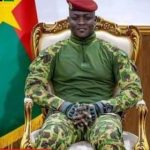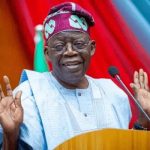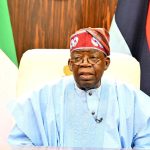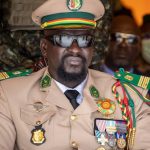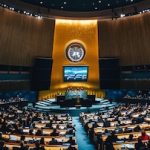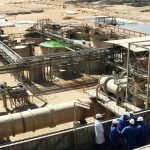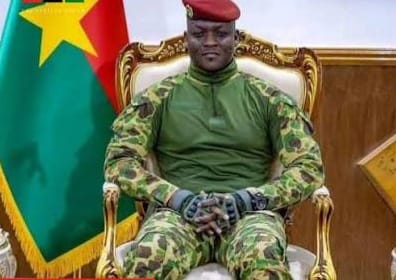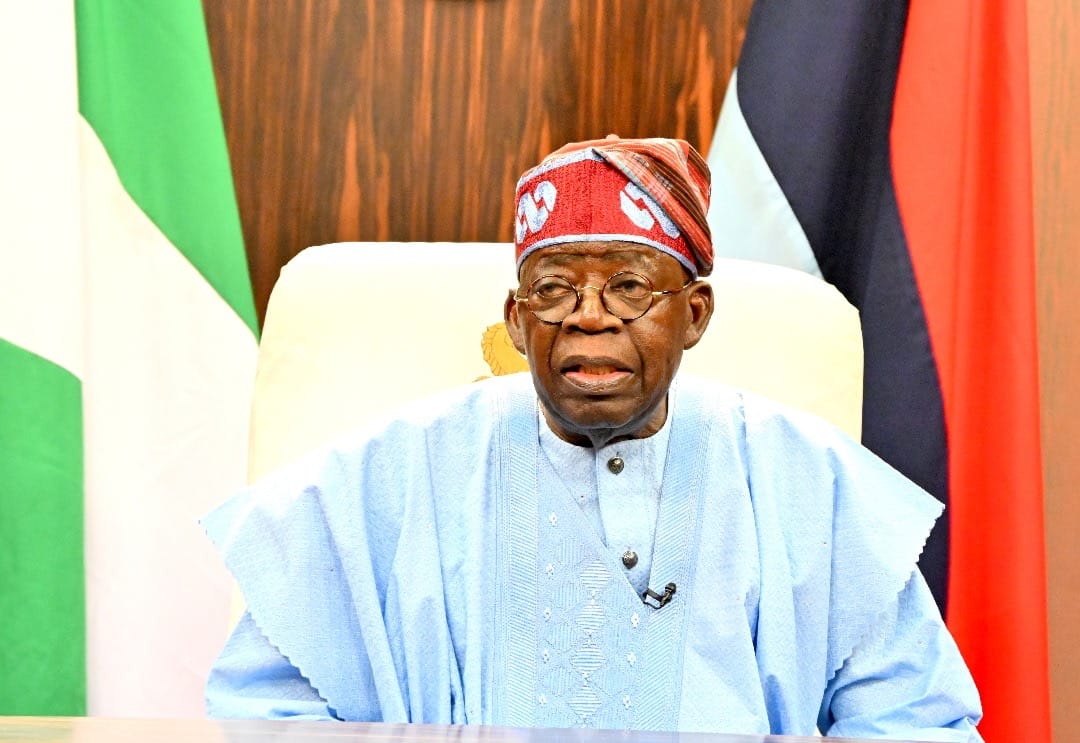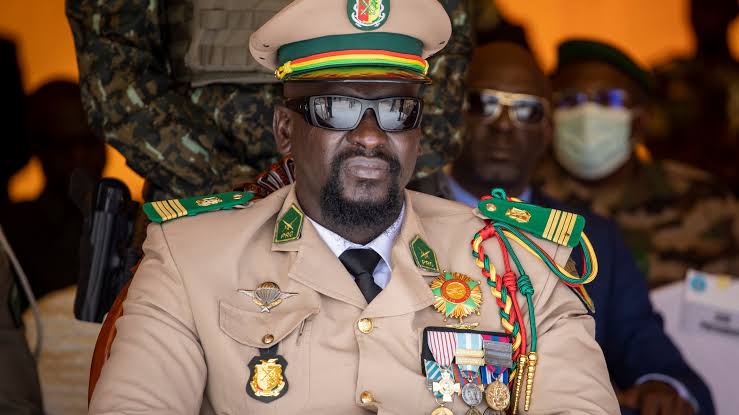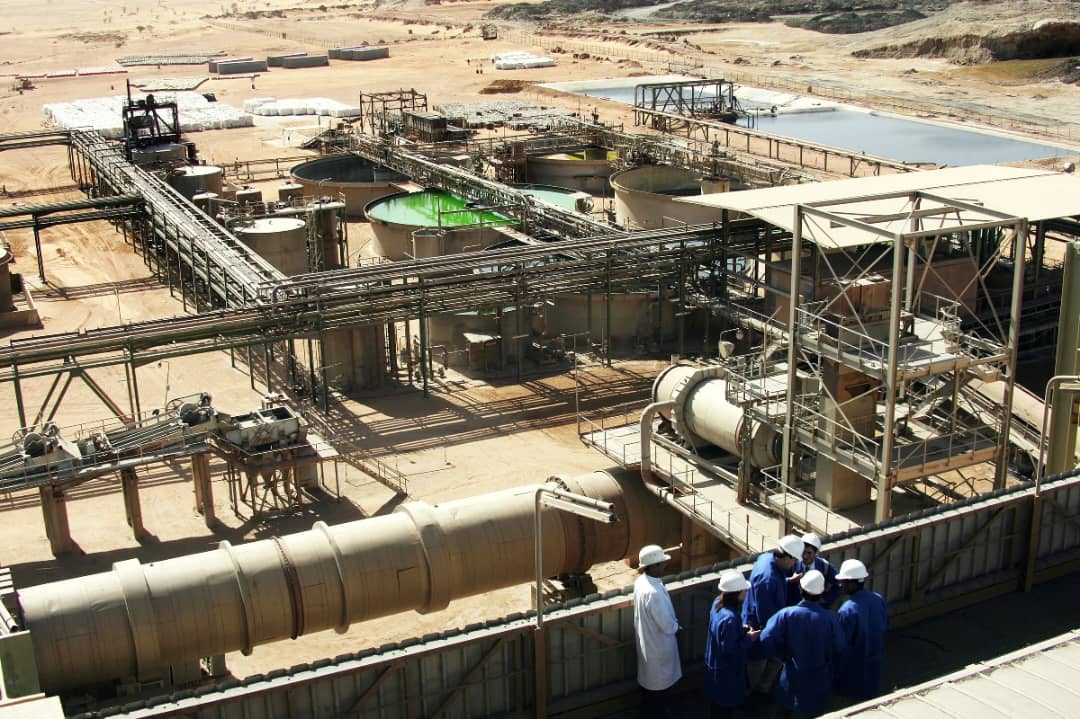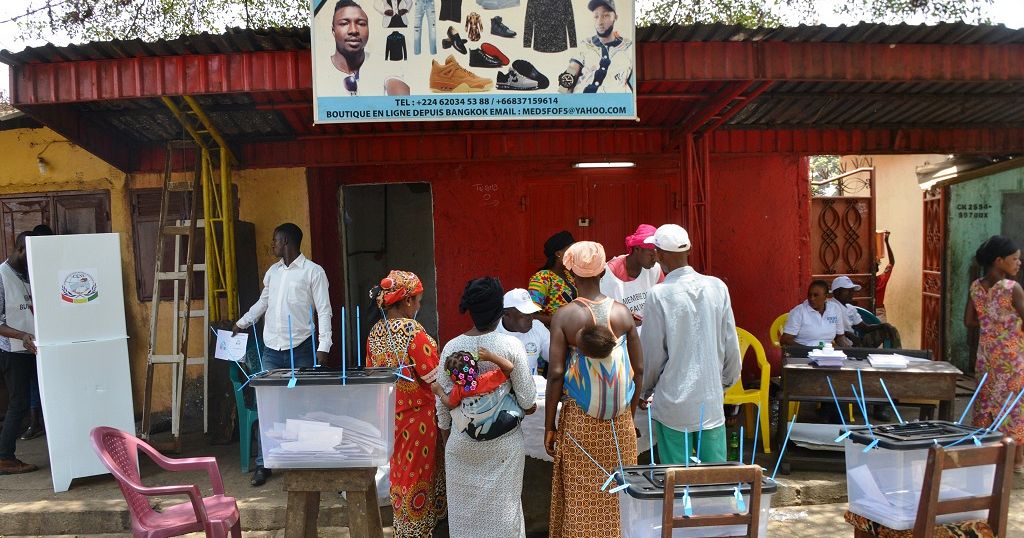Burkina Faso’s military leader, Captain Ibrahim Traoré, on September28, held a press conference marking three years since his rise to power through a military coup. The 37-year-old leader delivered a wide-ranging address in which he outlined his government’s achievements in security and defence, economic development, and diplomacy, while levelling pointed accusations against neighbouring Côte d’Ivoire for alleged destabilisation efforts.
Traoré, clad in his iconic military fatigues and distinctive red beret, began by reflecting on the coup that ousted the previous government on September 30, 2022. He framed his leadership as a revolutionary effort to reclaim Burkina Faso’s sovereignty from Western influence, a theme that has resonated with his growing base of supporters both domestically and across the African continent.
“Three years ago, we took a stand for our people, for our land, and against the neo-colonial shackles that have held us back,” he declared, earning applause from a select audience of military officials and loyalists. The captain highlighted progress in strengthening national security, claiming significant strides in combating the jihadist insurgency that has plagued Burkina Faso since 2015.
According to recent estimates from the Armed Conflict Location & Event Data Project (ACLED), violence has displaced over 2 million people, with non-state armed groups controlling approximately 40% of the country’s territory at its peak in 2022. These figures are disputed by the government and some other research groups.
Traoré asserted that his administration, in collaboration with its colleagues in the Alliance of Sahel States (AES), Mali and Niger, has reclaimed key areas and established a joint military force of 5,000 personnel, a development confirmed by Niger’s Defence minister, Salifou Modi, in January.
On the economic front, Traoré touted the establishment of a national gold refinery and reserves, part of a broader strategy to harness Burkina Faso’s mineral wealth. The recent licensing of Russian miner Nordgold in April was mentioned as evidence of his “revolution” to reduce dependence on external powers.
The press conference revealed underlying regional fissures with Traoré’s allegations that Côte d’Ivoire harboured dissidents and orchestrating manoeuvres to undermine his government. This accusation echoes a deteriorating relationship documented in a November 2024 World Politics Review article, which noted border spats and the recall of Burkina Faso’s diplomatic staff from Abidjan earlier this year.
“Certain neighbours, including Côte d’Ivoire, continue to plot against our stability,” Traoré charged, linking recent alleged coup attempts to Ivorian president, Alassane Ouattara. The absence of ambassadors since 2021-2022 for Côte d’Ivoire and 2022 for Burkina Faso further reinforces the diplomatic chill. Côte d’Ivoire has yet to respond officially, but the accusation risks escalating tensions in an already volatile region.
The strategic location of Burkina Faso at the intersection of Mali, Niger, and coastal West Africa has made it a focal point for insurgent activities. Some analysts believe Traoré’s comments may also strain relations within the West African Economic and Monetary Union (UEMOA), where both countries share the CFA franc currency.
Traoré’s leadership has positioned him as a charismatic Pan-Africanist figure. His expulsion of French troops in 2023 and alignment with the AES, which established the Confederal Bank for Investment and Development (CBID) in May, reflect his vision of economic independence.
In the rare 90-minute session, Traoré gave more details about the ongoing “war” against armed militants, vowing to “win” it decisively and announcing a “third phase” of security efforts focused on domestic arms production to equip the forces without reliance on foreign loans, which he noted are unavailable for weaponry anyway.
He emphasised that the army he inherited in 2022 was poorly armed and stressed the collective role of citizens in his personal security, insisting, “My only strength is that I am not afraid because I trust the Burkinabe people,” while pointing to lessons learned from past assassinations of revolutionary leaders to prevent internal betrayals.
Traoré also condemned “savage capitalism” for plundering national resources and reaffirmed unwavering support for Palestine, insisting that “the Palestinian state exists and must exist.” He highlighted the government’s buyback of gold mines and plans to reclaim other strategic sectors to bolster sovereignty.
Here is a considerable yet well-fitted conclusion to the piece:
Traoré’s three-year anniversary address was more than a recap of his tenure. It was clearly a reaffirmation of his revolutionary project. He presented a narrative of tangible, if hard-won, progress, reclaiming territory through regional alliances, asserting economic sovereignty via gold refineries and new partnerships, and mobilising the country for a collective fight.
His narrative, however, is set against a tough battle against jihadist insurgency, internal displacement, and a diplomatic landscape that has seen tensions rise with regional neighbours like Côte d’Ivoire.
Traoré makes his vision clear, a Burkina Faso free from what he considers neo-colonial influence, militarily self-reliant, and economically independent. However, the path to realising this vision is filled with immense challenges. The success of his “revolution” will ultimately be measured not by the force of his rhetoric or the symbolism of his alliances, but by his government’s ability to translate these ambitions into lasting security, stability, and prosperity, a task that he clearly performs with unrelenting zeal, his supporters insist.

